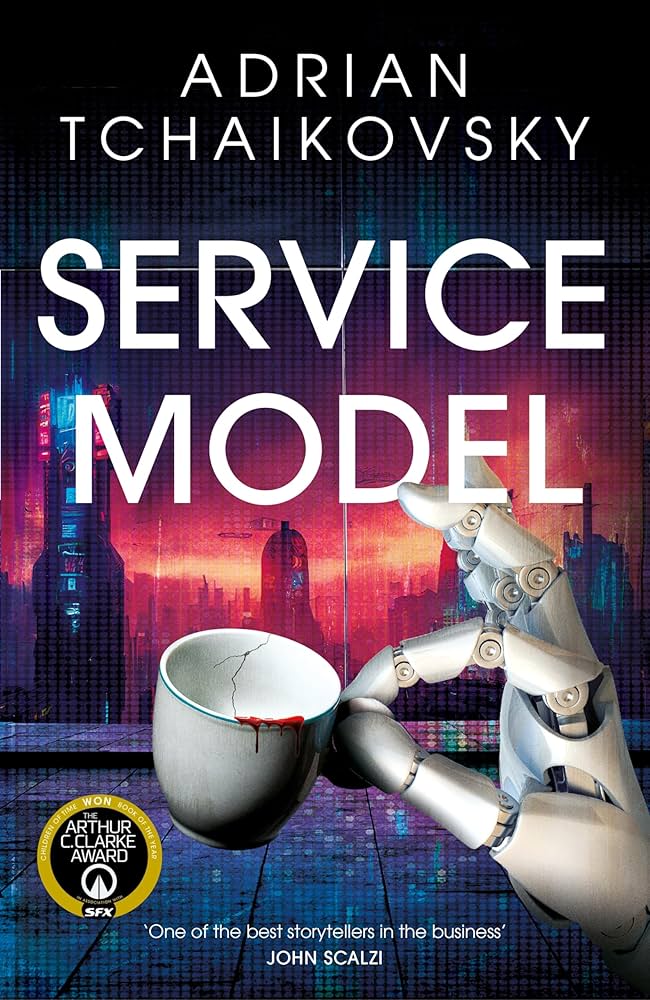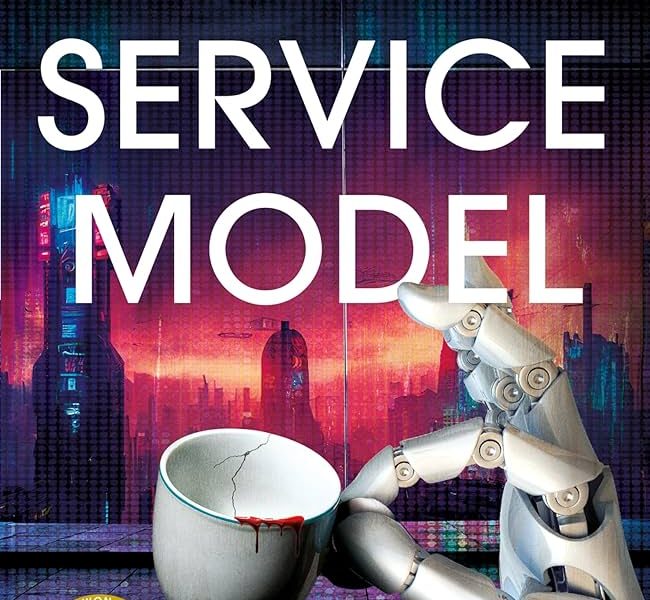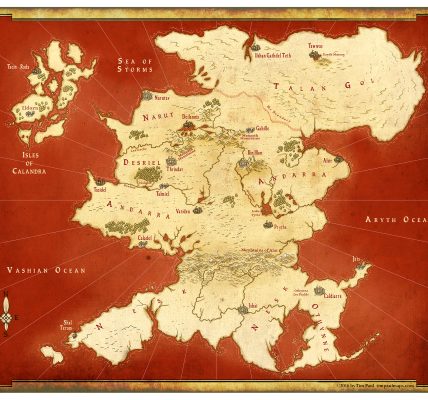Service Model – Review
At the end of the world, it’s not ‘how may I be of service’…it’s ‘where’?

Charles is the stereotypical manor valet one might expect to be produced by higher society—polite, hardworking, and discreet. He’s the model of perfect service. But there’s a catch: Charles is a robot. Designed solely to serve humans, he’s more than happy to spend his days checking off task lists, no matter how mundane, all in the service of his lord and master.
That is, until one day, Charles kills him. The aftermath doesn’t leave Charles burdened with guilt over the murder; rather, it leaves him desperately seeking… employment. Yes, what weighs on Charles’ robotic brain (or processors) is not the act of murder, but the fact that he can no longer serve a human. This desire to serve drives him on a journey through a world slowly falling into ruins. Along the way, he encounters a host of colourful characters: Knight-like Librarian robots bent on preserving human knowledge, power-hungry dictators with egos to match, and dysfunctional droids seeking their own salvation—some even on quests for meaning that lead Charles straight into the heart of a still-raging conflict.
In this sci-fi adventure-comedy of absurd proportions, Tchaikovsky crafts a fantastical insight into deep questions, such as: What constitutes consciousness? Is there any meaning in the downfall of humanity? And why does everyone assume Charles is sentient?
Charles is a fun and fantastic novel, giving readers a unique protagonist in the form of Charles, who, for the majority of the book, is referred to as “Uncharles.” As a machine, Charles’ reasoning often breaks down into pure logic derived from his core programming: to serve in the best interest of humans and remain faithful to the central principles of robotics, despite having already broken them.
It’s this extreme adherence to logical directives that often leads Charles, a highly advanced machine by any standard, into some rather awkward situations. Early in the novel, for example, an investigating robot fails to detain Charles for his murder confession due to a processing error. Later, Charles struggles to serve a new master because of the lack of clarity in the instructions provided.
Much of the humour in the novel stems from these situations, as Charles rigidly follows the logic of his programming (or, arguably, cleverly exploits the inherent flaws he observes due to his ambiguous sentience—an idea Tchaikovsky leaves tantalisingly uncertain in the reader’s mind). The story follows a character so stubbornly tied to his way of being, navigating a world where rules still exist, but vary depending on the intents of the machines that enforce them.
There’s a vast array of machines in the world, each with their own goals—some focused on preservation, others on destruction, and some still dutifully serving their long-dead masters. While these scenarios often lead to hilarity, there’s also a melancholic undercurrent, as the world these robots inhabit, once full of life, has become desolate and devoid of purpose. It’s a testament to the potential fate of humanity if we continue down a path of self-annihilation.
At times, though, this melancholy feels out of sync with the intended humour. Misery and hilarity can coexist, but Charles, as a protagonist, lacks the ability to truly reflect on the emotional weight of the world’s disarray. It’s only through the responses of his more emotionally capable companion, The Wonk, that the bleakness of the world is fully realised.
This duality works well as a way to explore Charles’ questionable sentience, but it also drives the narrative forward, sometimes unnecessarily. Charles/Uncharles can find almost any logical reason to arrive at any destination, which occasionally makes the journey feel more like The Wonk’s than Charles’. This, in turn, undermines the suggestion that Charles possesses free will, which the novel’s premise relies on.
As I read, I often wondered what the end goal of the story was, and when I finally reached it, I felt slightly underwhelmed. While Charles ultimately finds purpose, the conclusion seemed a bit drawn out—Tchaikovsky could have called it quits a hundred pages earlier. Sometimes, it’s the unanswered questions that linger most satisfyingly, and tying everything up in a neat bow can leave the answers feeling flat.
We don’t need to know definitively whether Charles is “alive,” nor do we need to care if his motivations are simply the result of ones and zeroes in his code. The speculative exploration of artificial consciousness is engaging enough to keep the reader hooked. And while the ending might leave a slightly synthetic taste, Charles remains a warm and inviting character to journey alongside through a fascinatingly bleak, yet disturbingly plausible, dystopia.
7 out of 10.





